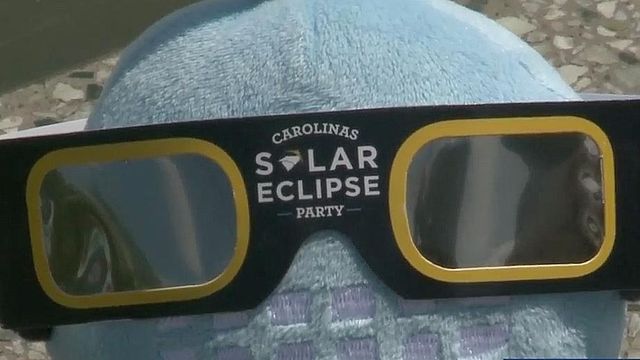Burn, blindness a risk without proper eclipse glasses
Staring at the sun for even a brief moment is not recommended. On the day of the solar eclipse, wear certified glasses or find another way to experience it safely.
Posted — UpdatedAlthough the sun is often in the field of vision, people can't physically look directly at it. It's simply too bright.
"The rays of the sun won't be any stronger or weaker during the solar eclipse, but the fact of the eclipse will tempt people to look longer, putting their eyes in danger," NASA Ambassador Tony Rice said.
That creates the risk for burned retinas or even blindness.
"Unless the sun is totally covered by the moon, you will get a retinal burn," said Dr. Don Budenz. "It could mean permanent vision impairment."
Budenz, an ophthalmologist at UNC Hospitals, said special eclipse glasses are one safe way to look at the sun.
"We want to be ISO certified," Budenz said. "In very small print, (it will say) 'ISO 12312-2.'"
With eclipse glasses on, the sun is dimmed to look like an orange ball, he said.
"I could literally look at the entire eclipse through these safety glasses without fear of harming my retina," he said.
Special eye protection is just as important in places of partial eclipse, like the Triangle.
"Here in the Triangle area, the sun will be, at its maximum, 93 percent eclipsed," said Amy Sayle, an astronomy educator at Morehead Planetarium.
Amy Sayle says, if you don't have eye protection, try using your hands.
"Make waffle patterns with your fingers. With your back to the sun, look at the image on the pavement. It will look like there are circles with a bite taken out of them," she said.
Only those in the path of the total eclipse will be able to look at it safely without protective eyewear. Even then, Dr. Allen Mask warns, "The moment the sun re-emerges, you can instantly damage your eyes."
• Credits
Copyright 2024 by Capitol Broadcasting Company. All rights reserved. This material may not be published, broadcast, rewritten or redistributed.






